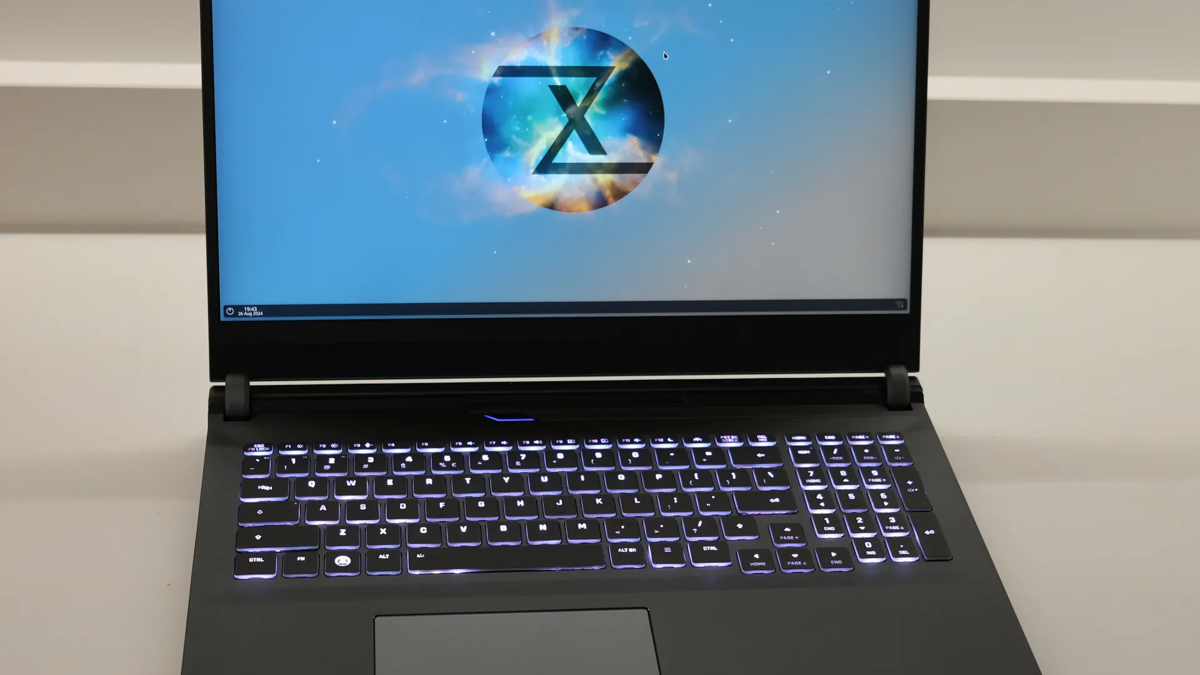A new patch series posted today to the Linux kernel mailing list would block kernel modules/drivers from TUXEDO Computers from accessing GPL-only symbols in the kernel.
TUXEDO Computers maintains a set of kernel drivers currently out-of-tree for their various laptops for additional functionality around power profiles, keyboard backlight controls, WMI, sensor monitoring, the embedded controller, and other functionality. They have said they want to eventually mainline these drivers but in the name of allowing for rapid hardware support they maintain them out-of-tree and ship them with their Ubuntu-based TUXEDO OS and also have the driver sources available via GitLab.
The issue at hand though is that these kernel drivers marked as GPLv3+ and that conflicts with the upstream Linux kernel code licensed as GPLv2. There was a commit to change the driver license from GPLv3 to GPL(v2) but was reverted by TUXEDO Computers on the basis of “until the legal stuff is sorted out.”
Update: TUXEDO Computers Relicenses Some Of Their Drivers To GPLv2
As of yesterday, TUXEDO Computers has now been able to re-license their driver consisting of fully in-house code from GPLv3 to GPLv2+. These are the TUXEDO Computers drivers where it’s all written by TUXEDO employees and not having to worry about code from any third-party developers or other vendors.
The gxtp7380, ite_8291, ite_8291_lb, ite_8297, stk8321, tuxedo_compatibility_check, tuxedo_nb02_nvidia_power_ctrl, and tuxedo_tuxi drivers are the initial ones able to be moved to the GPLv2+ licensing for satisfying upstream Linux kernel developers. Moving the other drivers to GPLv2+ will take longer due to needing to check with the associated parties that contributed to those drivers.
one of the awesome things about buying a linux laptop from a linux company like tuxedo is that you don’t have to worry about things like this since they have paid developers who maintain their own distro to “take care” of things like this and buying one of these linux laptops has made my experience smooth and thought free as a mac user.
it’s a double edge sword however: lemmy has taught me that smooth sailing with linux laptops keeps you unaware of the trouble that lurks beneath the surface and that’s disconnected me from the general linux user experience and has gated me from understanding the common themes and problems they encounter; i’ve started a new linux build and this time i’m going to do it the same way everyone here does, with a windows laptop.
that’s disconnected me from the general linux user experience
are we romanticizing having a broken system?
@bunitor @eldavi yeah, why? This just shows that, if more hardware companies actively supported linux, there would be no issues left for non-tech end users, which would be awesome.
Please buy laptops and desktops from tuxedo, system76, framework, etc, and recommend them. They’re doing a great job and do deserve the support.
Please buy laptops and desktops from tuxedo, system76, framework, etc, and recommend them. They’re doing a great job and do deserve the support.
amen. i’ll continue to buy from them for the things that i depend on (eg low cost personal servers and high end work laptops); but i plan to use a generic low-spec windows laptop for daily driving to teach me what the general linux user experience is like these days since lemmy is showing me that i still get something out of helping other people while i simultaneously get to leverage my knowledge and experience in an arena that’s been enabling my life for these last 3 decades to do so.
it’s bit like the mandates that i get from my management as an individual contributor; but more “WTF” and the “TIL’s” that i get from it makes it more fun for me.
I use TuxedoOS on my desktop at home and it’s been great there as well. Can’t recommend it enough.
deleted by creator
very much so in addition to creating a new project for myself that’s exciting; that’s a big deal to me because i can’t remember the last time in decades that i felt any excitement over any linux based project.
i learn best by challenging my knowledge and it teaches me where i’m ignorant and i can use that specify which areas to focus my self education.
deleted by creator
laptops can be hit or miss because of all the custom proprietary stuff in them.
my experience is the same and that’s why i’m going with a laptop; i wonder if the skills i’ve picked up since the last time i tried are going to help any since they’re the kind of skills that get you paid in the linux world.
deleted by creator
Agreed it’s great that they provide firmware support and (hopefully) upstream it eventually. But I also hope they have well documented steps somewhere on how to install it on another distro, because it’s likely many people install their own anyways.
i’m glad you brought that up; lemmy has taught me that people will use those linux company distros w/o the support and it blows my mind and makes me agree that they should be upstreaming it; i know that system76 does (eventually) and i wonder if tuxedo or anyone else does as well.
laroyê
What are you talking about? I run (atomic) fedora and I have a smooth experience.
You could easily sell your mac and buy a normal computer to have a smooth experience if the mac results in lots of problems
i don’t have a mac anymore; but this exactly why i’m pursing this project: the last time i did this fedora atomic didn’t exist and i’m likely to encounter that it’s more rock solid than the fedora distros that i used to daily drive with before buying a linux laptop directly from the linux factory.
they have paid developers
They should pay lawyers as well.
Lawyers cost A LOT more than developers
Imagine having such a hard-on for letting corporations exploit your work in abusive Tivoized products that you stoop to retaliation against a company that’s actually trying to protect their customers.
why would they use the gplv3 in the first place? didn’t they know it’s incompatible with v2?
They know it’s better than v2.
enjoy having the best blacklisted drivers on linux then i guess
Because the linux is explicitly only gpl2. If it was gpl2+ then gpl3 code could use it. It’s a very known problem around the incompatibility of some licenses. The kernel people explicitly only want to use gpl2 and refuse changing the license because it’s better for companies that want to use linux without giving back the code.
did you understand my question?
kek if true
deleted by creator
Ah, that is why keyboard backlight stopped working on my Aura 2 last week.
So, gpl3 is apparently not GPL and is somehow proprietary. Sure, makes perfect sense. Idk where they even find those geniuses.
GPL3 has extra restrictions banning patients etc. So yeah a lot of GPL 2 code written by companies that open software but not hardware. Would have legal questions about running with GPL 3
GPL 3 was created to be more restrictive to non-open hardware.
GPLv3 is less proprietary than GPLv2, in the sense that it does a better job at protecting end-users from being abused by device makers that would try to close up their Linux-based system.
Only if those device makers are willing to use it. And that has always been the tightrope linux has walked.
Its very history as a x86 platform means it has needed to develop drivers where hardware providers did not care. So that code needed to run on closed hardware.
It was bloody rare in the early days that any manufacturer cared to help. And still today its a case of rare hardware that needs no non free firmware.
Free hardware is something I’ll support. But it is stallman et als fight not the linux kernel developers. They started out having to deal with patented hardware before any one cared.
Yeah, but dudes there are kinda pissed off about semantics, IMO. Like, unless there’s a PR from tuxedo using the same v3, I don’t think it should concern them in the slightest… And instead of saying “keep in mind it’s not upstreamable” they go out of their way to mark tuxedo’s patches as proprietary 🤨
proprietary
Well related to the owner is the very definition of proprietary. So as far as upstream vs not available for upstream is concerned. That is what the term is used for in linux.
So yep by its very definition while a manufacture is using a licence that other distributions cannot embed with their code. Marking it proprietary is how the linux kernal tree was designed to handle it.
EDIT: The confusion sorta comes from the whole history of IBM and the PC.
Huge amounts of PC hardware (and honestly all modern electronics) are protected by hardware patients. Its inbuilt into the very history of IBMs bios being reverse engineered in the 1980s.
So as Linux for all its huge hardware support base today. It was originally designed as a x86(IBM PC) compatible version of Unix.
As such when Stallman created GPL 3 in part as a way of trying to end hardware patients. Linux was forced to remain on GPL 2 simply because it is unable to exist under GPL 3 freedom orientated restrictions.
The proprietary title is not seen as an insult. But simply an indication that it is not in the control of the developers labelling it.
Ah, okay, thanks for clarification
Tuxedo is violating Linux’s licence - driver modules use the kernel and therefore have to be released under a compatible licence. That’s all.
banning patients
Did you mean patents?
yeah, auto correct.
You wanna get tivoized? Ha? Because that’s how you get tivoized.










